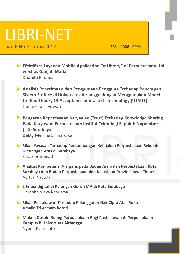Jurnal Analisis Hubungan Internasional
ISSN 2302-8777
Vol. 3 / No. 1 / Published : 2014-03
Order : 5, and page :67 - 83
Related with : Scholar Yahoo! Bing
Original Article :
Sengketa kepulauan senkaku antara cina dan jepang (1998-2013)
Author :
- Anugerah Hendri Rahmanto*1
- Mahasiswa Fakultas Ilmu Sosial dan Ilmu Politik
Abstract :
This research try to explain why Senkaku islands dispute haven’t resolved evenbetween 1998-2013 there is an effort to resolve dispute. To explain that, thewriter use theoretical framework such as conflict dynamics, state level ofanalysis, dispute resolution through negotiation and power influence tointerest and behavior. The writer hypothesis is Senkaku Islands disputebetween China dan Japan resolution haven’t succed because the change ofinterest and behavior of China that influenced by their increasing po wer. Thatmade China to stand stronger in their position which implies strongerpolarization between China and Japan. The Writter found that the increasingpower of China made him to stand alone and more agressive. Because Chinastand strong for their position, the negotiation between China and Japan havebeen disturbed.
Keyword :
Dispute, Senkaku Islands, Negotiation, ZEE Delimitation, Joint Development,
References :
Drifte, Reinhard,(2008) Japanese-Chinese Territorial Disputes in the East China Sea – Between Military Confrontation and Economic Cooperation London : The London School of Economics and Political Science
International Crisis Group,(2013) Dangerous Waters: China-Japan Relations on the Rocks Brussels : International Crisis Group
Su, Steven Wei,(2005) The Territorial Dispute over Tiaoyu/ Senkaku Islands: An Update Beijing : Taylor and Francis Group
Taylor, Claire and Youngs, Kim,(2008) House of Commons : China’s Military Posture London : House of common library
Wallace, Rebecca M,(1986) Hukum Internasional London : Sweet & Maxwell
Archive Article
| Cover Media | Content |
|---|---|
 Volume : 3 / No. : 1 / Pub. : 2014-03 |
|













